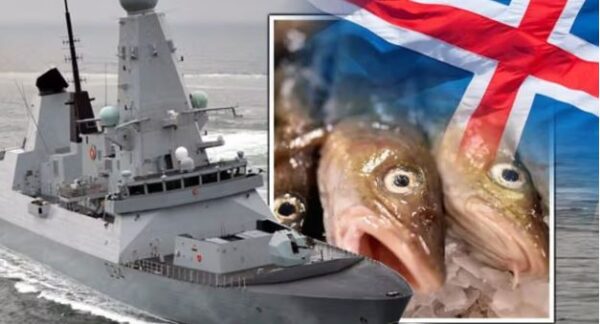Lifestyle
The Cod War when Britain and Iceland went to war over fish

Once upon a time, not in a land of fantasy but in the real world, two countries, Britain and Iceland, found themselves in quite an unusual conflict.
This series of disagreements, known as “The Cod Wars,” was a serious dispute over fishing rights in the North Atlantic.
What sparked the Cod Wars?
The heart of the matter was simple: both Britain and Iceland wanted to catch cod, a type of fish very popular for its meat. Cod was not just any fish; it was essential for the people in both countries, either as a part of their meals or as a source of income.
Iceland, being surrounded by the rich waters of the North Atlantic, saw these fish as a vital resource. However, as technology improved, bigger boats from Britain could travel further and catch more fish, including in areas Iceland considered its own backyard.
The first conflict
The Cod Wars actually happened in three main rounds. The first one started in the 1950s when Iceland decided to extend its fishing area from 3 miles to 12 miles from its coast. Britain didn’t like this idea because it meant their boats had to travel further to catch fish. They refused to recognise this new rule, leading to the first Cod War. During this time, there were a lot of boat-chasing and some fishy confrontations at sea, but thankfully, no major battles.
Escalation and resolution
As years went by, the disputes kept flaring up. Iceland would extend its fishing area, and Britain would protest. By the third Cod War in the 1970s, Iceland had extended its fishing limit to a whopping 200 miles!

Britain was not happy about this, and the situation got so tense that both countries sent their navies to the fishing areas. Can you imagine? Navies sent out to protect fishing boats!
Despite the serious nature of these confrontations, they were mostly about cutting nets and blocking boats, not fighting. The resolution finally came when Britain agreed to recognise Iceland’s 200-mile fishing limit, but in return, some British fishing boats were still allowed to fish in certain areas, under specific conditions.
The legacy of the Cod Wars
The Cod Wars showed how important natural resources like fish are to a country’s economy and identity. These disputes led to changes in international laws about the sea and fishing rights, affecting how countries share and protect the ocean’s resources.
Today, the waters are calmer, and the Cod Wars are a tale of the past.






